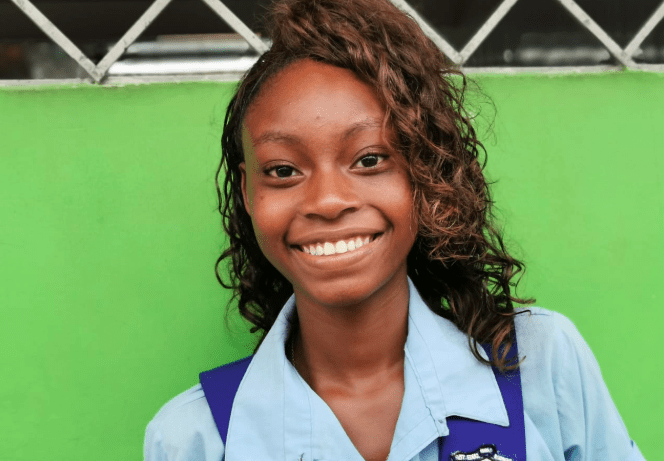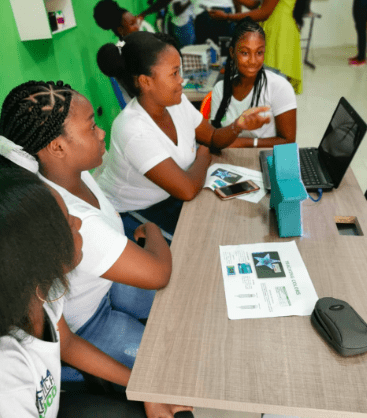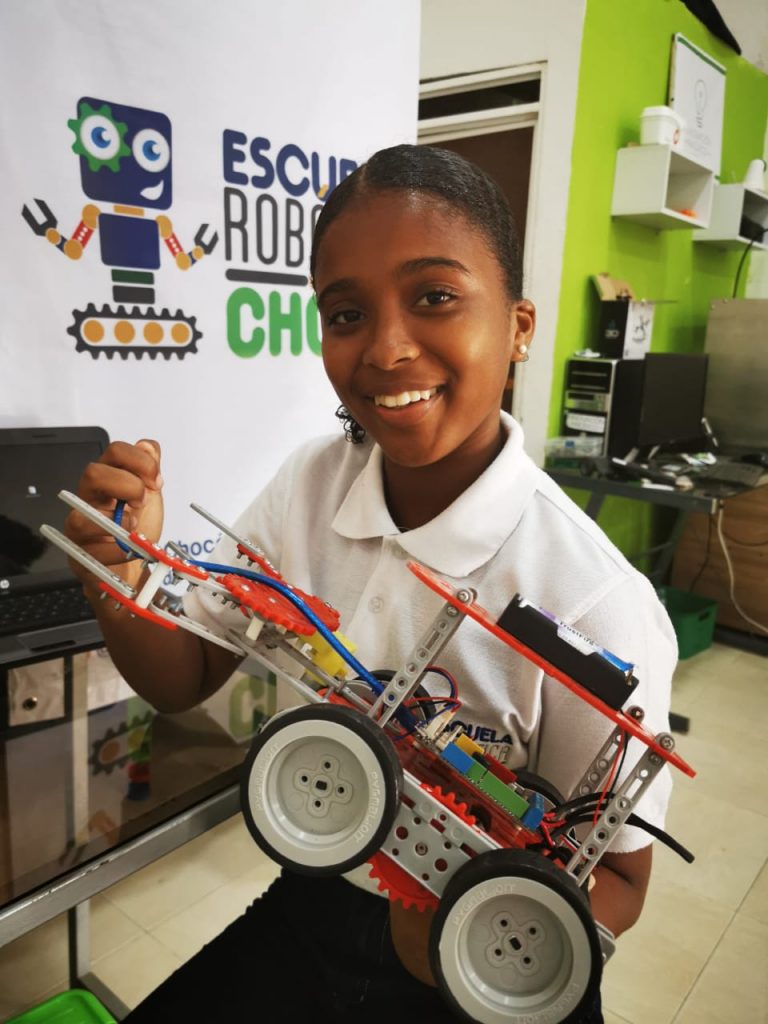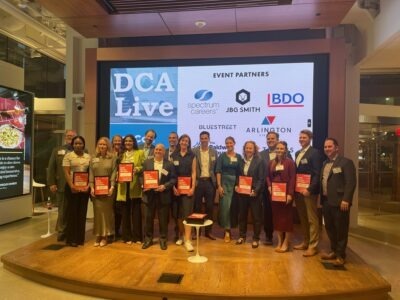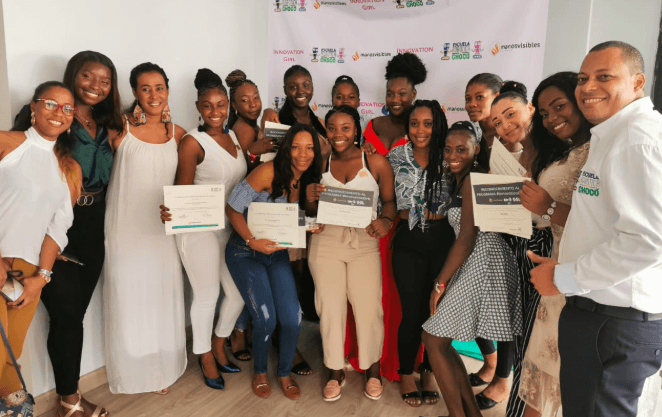
Women and girls from Colombia’s Pacific Region are showing the world a different side of the once-marginalized area. Two young women who participate in the Escuela de Robótica [School of Robotics] in Quibdó, supported by the ACDI/VOCA-implemented USAID Colombia Program of Alliances for Reconciliation (PAR), have received good news: They have been selected to take part in a program at NASA’s Space Center University in Houston, Texas.
At NASA, the young women will train like astronauts and engage in hands-on engineering challenges related to space exploration. Kelly Córdoba García (13; right below) and Yorleidy Parra Torres (14; left below) participate in the Innovation Girls and Empowered Women programs, both offshoots of the School of Robotics, which teaches science and technology as problem-solving tools.
Programs Encourage Women & Girls’ Participation
Jimmy García, founder of the Escuela de Róbotica, set up Innovation Girls to draw more women and girls into the world of robotics after noticing that significantly less girls took robotics classes because they felt intimidated. Following the success of Innovation Girls, the school set up another group, Empowered Women, to reach women and girls in the marginalized neighborhood of El Reposo. PAR implements a security and coexistence pilot project in El Reposo to promote safer ways for young people to occupy their free time.
The dedicated classes empower girls on multiple levels: Not only are the young women now able to use the technology skills they gain to solve problems, they have also expanded their future employment options to include computer programming. The initiative also teaches important life skills, such as communication and teamwork. It also boosts social cohesion by bringing together different groups that did not mix previously due to gang-related conflicts.
Additionally, the Empowered Women program provides healthy alternatives for young people to occupy their free time, keeping them busy and reducing the risk of recruitment into illegal activities. This is particularly important, says García, as the lack of economic opportunities can lead teenage girls to sex work and other harmful practices.
The initiative also creates new narratives about Afro-Colombian women from Chocó. It breaks down gender stereotypes by showing that girls and women can take part in activities typically thought of as belonging only to boys.
“Since I joined Escuela de Robótica, I have changed the way I think about what girls can and cannot do. We are capable of doing whatever we put our minds to. We’re a strong gender, I feel very empowered and want to be an example for other girls so that they can also see their full potential.”
Kelly Córdoba García, a project participant who represented the school at an international robotics tournament in China and at a conference for women in technology in Paraguay
Yorleidy echoes these sentiments: “It’s important that girls are empowered because a lot of people think that girls can’t do certain things, but we can. If men and boys can be leaders, we can also be leaders.” Yorleidy dreams of becoming a business administrator when she grows up. She also wants to set up her own business.
Robotics Program Integrates DecidoSer Activities to Boost Women & Girls’ Confidence
Integrating PAR’s DecidoSer activities—which promote social and behavior change—into the robotics program has also helped build self-esteem and confidence among the women and girls, many of whom have suffered gender-based violence, both physical and emotional. Many of them have been told from a young age that girls belong in the home taking care of household chores.
“The girls are more conscious of their self worth, that they have knowledge, and that they have something to contribute to society. Before, if you asked them about the future, they weren’t able to answer but now they have dreams and aspirations and have the confidence to talk about them,” García explains.
Learn more about our Program of Alliances for Reconciliation here.
Learn more about our work in Colombia here.

